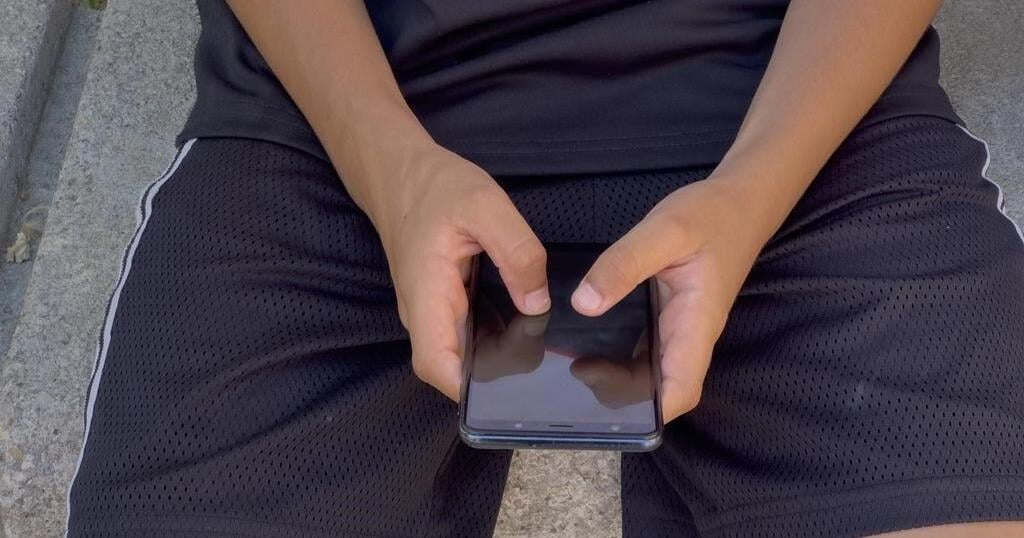New rules that ban the use of cellphones in class are taking effect at schools across Ontario this week, but critics say they’re unsure how the regulations will be enforced or how effective they will be.
In April, the Ontario government announced a plan to standardize measures on cellphone use in classrooms, saying it wanted to remove distractions from learning time.
While the province had already put in certain restrictions on cellphones in 2019, the new rules set more specific guidelines that are broken down by grade.
Starting next week, students in kindergarten to Grade 6 must keep cellphones on silent and out of sight for the entire school day. For students in Grade 7 to Grade 12, cellphones cannot be used during class time. The province has said cellphones may only be used if permitted by an educator, or if students have special education or medical needs.
While the overall aim of reducing distractions is welcome, teachers unions say they need clarity on how the rules should be enforced and support for educators that have to implement them.
“Principals don’t know what it means. School boards are kind of all over the place,” said Rene Jansen in de Wal, president of the Ontario English Catholic Teachers Association. “I have teachers calling me who are just beside themselves.”
Teachers are unclear on what happens if they confiscate a phone and it gets damaged or stolen in the process, or what staff should do if a student reacts violently to their phone being taken away, he said.
The government has said that students who don’t abide by the rules will be asked to put their phones in a safe space in the classroom. If they don’t comply, they’ll be asked to go to the principal’s office.
David Mastin, first vice-president of the Elementary Teachers’ Federation of Ontario, said there are questions about how effective the rules will be.
“The principal will deal with them, and then what happens five minutes later is that child returns to class … these are the things that are on the ground that we don’t yet have answers on,” he said.
Karen Littlewood, president of the Ontario Secondary School Teachers Federation, said she’s concerned about the burden on teachers.
“A lot is expected of teachers right now,” she said.
Education Minister Jill Dunlop, who stepped into the role just weeks ago, said the government has set minimum standards with the new rules and “will support educators and principals in the actions that they take.”
“This is a culture change that’s happening in our classrooms,” Dunlop said during a news conference last week.
“I was an educator as well, in the college area, but I saw firsthand the distraction that cellphones can cause in the classroom.”
Several provinces are cracking down on cellphone use in class this fall.
Last week, British Columbia announced a “bell-to-bell” restriction on phones. Earlier this month, Saskatchewan announced that students won’t be allowed to use cellphones in class in the new school year.
Manitoba, Alberta, Quebec and Nova Scotia have also moved to restrict cellphones in schools.
Littlewood, with the secondary teachers’ union, argued that the Ontario-wide rules for cellphones in schools are “not the biggest issue in education right now.”
“What we need to be doing is addressing the broader issues in education, like class sizes that are too big, unqualified teachers in the classroom, unable to fill positions within education, lack of resources and support,” she said.
Many school boards had already developed their own cellphone policies before the province’s new rules were announced, Littlewood said, adding she’s spoken to teachers who feel the new ban won’t change much.
Mastin, with the elementary teachers’ union, also said the new policies do “very little” to address deeper problems. He pointed to cyberbullying, violence and harassment in schools as major concerns for educators.
“Those are the issues we needed to be addressed, and they weren’t,” Mastin said.
At the Toronto District School Board, the board’s code of conduct already says mobile devices are only to be used for education purposes.
The board said it has briefed staff on the new provincewide rules.
“TDSB administrators and staff have been provided with detailed information regarding the minimum requirements for cellphone/mobile device use in schools to be implemented for September,” spokesperson Emma Moynihan wrote in an emailed statement.
The Peel District School Board said principals would be working with staff, students, parents and guardians to “facilitate understanding of the new requirements.”
“This will take place through assemblies, conversations and collaboration in schools,” it wrote in an update to parents.
In northern Ontario, the Rainbow District School Board said it would be working to “foster positive school climates” for students.
“Eliminating distractions will protect instructional time and enable educators and students to focus on teaching and learning,” director of education Bruce Bourget wrote in a statement.
Along with its new cellphone rules, the province is also banning vaping on school property starting this academic year.
This report by The Canadian Press was first published Sept. 2, 2024.
